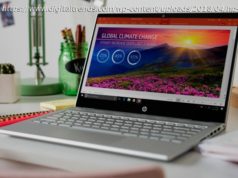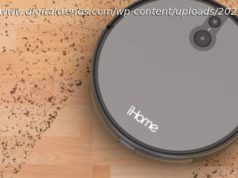Jim Cramer gave his take on how shareholders should play the proxy battle occurring between Procter & Gamble and Nelson Peltz.
Monday’s proxy fight between activist investor Nelson Peltz and the board of consumer goods giant Procter & Gamble captivated plenty of market-watchers, including Jim Cramer.
«There’s no glossing over it, » the » Mad Money » host said. «But let’s not lose sight of the prize here as the market stands at what I regard as a truly make or break level … and I think the fulcrum will be a slew of earnings that represent every important group I follow. The results we get this week I think could determine where stocks are headed for the rest of the quarter.»
Given Peltz’s track record of successfully turning companies around, Cramer did not understand why Procter took such a hard line against letting him onto the board.
However, considering how hard the company has worked to improve without much to show for it, Cramer said it was worth wondering how much Peltz can truly contribute.
«Still, my feeling is that Procter & Gamble is worth owning — that’s been my view the whole way — because you’ve just gotten still one more way to win. The uglier this proxy fight gets, maybe the more shareholders stand to gain, » Cramer said.
With that in mind, Cramer looked ahead to the rest of the week’s earnings reports to see what they can reveal about the road ahead for stocks.
While Cramer likes cases where the best thing for a company is its CEO stepping down, they are few and far between and often quite bad for shareholders.
«But every now and then, investors will have such a low opinion of management that a CEO departure can actually send a stock soaring higher, » Cramer said. «Just look at what happened with an old favorite of mine, Zimmer Biomet, the big medical device company that specializes in orthopedic implants, just last week.»
When David Dvorak, Zimmer Biomet’s CEO, announced he would step down from his post with no permanent replacement in line, the medical device company’s stock barely budged.
Since the news broke, shares of Zimmer have actually gone higher, suggesting that investors were optimistic about Dvorak’s departure, Cramer said.
«To be really diplomatic about it, lately, Zimmer Biomet has been plagued by sub-optimal execution, » the «Mad Money» host explained.
With investors worried about President Donald Trump’s stymied agenda, the Federal Reserve’s interest rate hike schedule and overvalued stocks, Cramer flagged one growth area they seem to be ignoring.
«What isn’t getting enough attention by anybody is how we’re seeing such strong turns in so many countries and continents around the globe, » Cramer said.
One after another, European countries are resolving their banking crises, signaling full speed ahead for the euro, one of Cramer’s favorite currencies, to run higher, he said.
«It’s why I think the EZU, the iShares MSCI Eurozone ETF makes so much sense to own, » Cramer added, referring to the exchange-traded fund he sees as the best way to play the euro’s moves.
But Europe is not the only continent where Cramer sees economic data supporting a pickup in growth.
Cramer also sat down with Aaron Easterly, the CEO of privately-held pet care network Rover.com.
After a $65 million fundraiser last week and a recent acquisition of a rival dog-sitting service, Rover has become the undisputed leader in the pet-sitting space, helped by its comparably low cost of care to services like kennels and its intuitive e-commerce platform.
«We’ve been called the Airbnb for dogs, the Uber for dogs. I think it’s a decent connotation, although most people, once they use it, they realize there’s a very different experience and it’s a richer experience with the service providers, » Easterly told Cramer on Monday.
And with 76 percent of U. S. survey respondents saying they see themselves as parents to, not owners of, their pets, Easterly expects his business to evolve far beyond dog-walking.
«We think we can be the dominant brand in all of pets. Most pet companies, they either have small penetration of the target audience or very low loyalty. We’re one of the few brands that actually have high penetration as well as high share of wallets, which puts us in a unique position, » the CEO said.
Finally, Cramer took up a former caller on his request to learn more about Aurinia Pharmaceuticals, a small-capitalization, development-stage biotechnology company known for its lupus treatments.
The «Mad Money» host went straight to the source with Aurinia’s CEO, Dr. Richard Glickman, to learn more about the company’s leading drug, a Phase-3 treatment for lupus nephritis, a condition where lupus causes kidney inflammation.
Glickman told Cramer on Monday that while the clinical trial process is not always optimized per treatment, which can cause problems in how the results are perceived, treating a specific kind of lupus gave Aurinia an opportunity.
«At least in lupus nephritis, when you’re looking at proteinuria, or protein in the urine, if you could drop protein in the urine down to a normal level, that has a big implication for patients. It makes it easier to study and easier, eventually, to get regulatory approval for, » the CEO told Cramer.
Glickman is currently leading the company through its Phase-3 trial of its top drug, which will involve 320 patients and 200 sites around the world. Aurinia is aiming to reproduce the successful results of the drug’s Phase-2 trial, which Glickman hopes would lead to regulatory approval. But watch where you invest, the CEO warned.
«These are speculative stocks. They are. And I think that’s a reality and I think people, when they make a decision, they should do their homework, » Glickman said. «They should really understand the diseases they’re investing in and the program they’re investing in and the quality of the management they’re investing in. I think we have an excellent opportunity ahead of us. There’s no guarantees, but I think when you look at a risk profile, I think we look pretty good.






